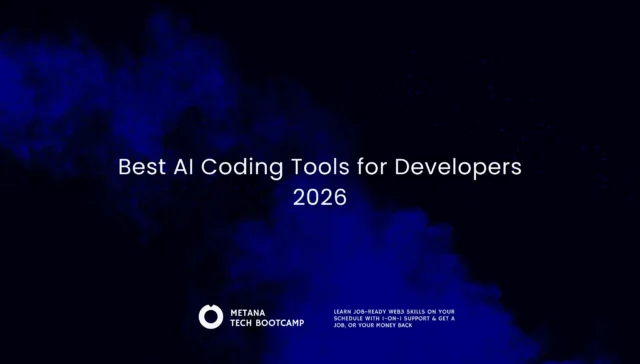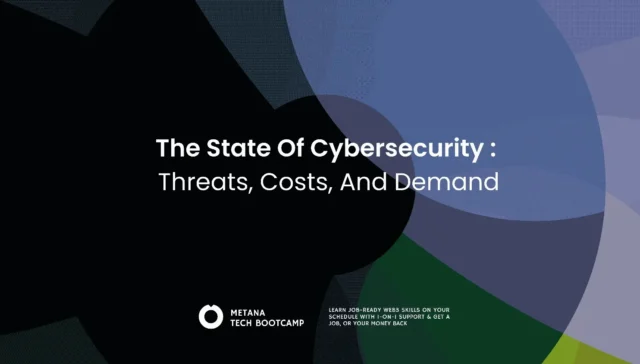Decentralized Applications, commonly known as dApps, have revolutionized the way we interact with digital services, providing enhanced security, transparency, and user control. As the backbone of blockchain technology, dApps require robust and efficient programming languages for development.
Choosing the right language for dApps programming is crucial for ensuring the security, performance, and scalability of your dApp. In this article, we will explore the top programming languages for dApps developers and highlight their key features and use cases.
Front-End vs. Back-End Development for dApps
Building a dApp involves two crucial aspects, similar to traditional web development:
- Front-End Development: This focuses on the user interface (UI) – the visual elements and functionalities users interact with directly. Think buttons, menus, data displays, and everything that makes the dApp user-friendly.
- Back-End Development (or Smart Contract Development): This involves the behind-the-scenes logic that powers the dApp. Here, developers write code (called smart contracts) that executes on the blockchain network, handling transactions, storing data securely, and ensuring the application functions as intended.
In the context of dApps, the back-end relies heavily on smart contracts instead of traditional servers. These self-executing contracts manage the core functionalities of the dApp on a public and transparent ledger.
Top Languages for dApps Programming
Solidity
Solidity is the undisputed champion for developing smart contracts on the Ethereum blockchain. Its high-level syntax, similar to JavaScript, makes it approachable for developers with a web development background.
- Key Features:
- Designed specifically for writing secure smart contracts.
- Integrates seamlessly with the Ethereum Virtual Machine (EVM).
- Offers features like inheritance, libraries, and events for complex contract creation.
- Use Cases and Examples: Solidity powers a vast array of dApps on Ethereum, from DeFi protocols like Uniswap to NFT marketplaces like OpenSea.
Vyper
Vyper is an alternative smart contract language for Ethereum, aiming for even greater security by enforcing stricter coding practices.
- Key Features:
- Statically typed language, offering increased security through type checking.
- Smaller codebase compared to Solidity, potentially reducing vulnerabilities.
- Use Cases and Examples: While not as widely adopted as Solidity, Vyper is used in security-critical dApps like the Gitcoin Grants platform.
JavaScript (with Web3.js)
JavaScript, the king of web development, extends its reach to dApps through libraries like Web3.js. Web3.js acts as a bridge, allowing JavaScript code to interact with blockchain data and smart contracts.
- Key Features:
- Leverages the vast developer pool familiar with JavaScript.
- Web3.js library simplifies communication with the blockchain.
- Use Cases and Examples: JavaScript with Web3.js is a popular choice for building user interfaces and front-end functionalities for dApps across various blockchains.
Rust
Renowned for its speed and security, Rust is emerging as a powerful language for blockchain development. It’s the native language for building smart contracts on the Solana blockchain.
- Key Features:
- Offers exceptional performance and memory management.
- Focuses on preventing errors at compile time, enhancing security.
- Use Cases and Examples: Rust is the foundation for high-performance dApps on Solana, including DeFi platforms like Serum and lending protocols like Solend.
Go (Golang)
Go, developed by Google, is gaining traction in the blockchain realm due to its simplicity, concurrency features, and growing developer community.
- Key Features:
- Easy to learn and write, with a clean and concise syntax.
- Built-in concurrency features facilitate efficient handling of multiple tasks.
- Use Cases and Examples: Go is used for developing smart contracts on platforms like Hyperledger Fabric and building blockchain infrastructure tools.
Choosing the Right Language
Selecting the perfect language for your dApp development journey hinges on several crucial factors. Here’s a table summarizing these considerations:
| Factor | Description |
|---|---|
| Blockchain Platform Compatibility | The language needs to be compatible with your target blockchain (e.g., Solidity for Ethereum, Rust for Solana). |
| Security Features | The language should prioritize secure coding practices to minimize vulnerabilities. |
| Development Community and Resources | A large and active developer community provides access to valuable resources and support. |
| Performance and Scalability | Choose a language that can efficiently handle increased user traffic and future growth. |
Final Thoughts: dApp Development
The landscape of dApp development has a lot of possibilities. We’ve explored some of the most popular languages – Solidity for Ethereum, Rust for Solana, JavaScript with Web3.js for front-end development, and emerging players like Vyper and Go. The choice ultimately depends on your specific project needs, target blockchain, and desired level of security and performance.
Remember, the world of dApp programming is constantly evolving. New languages and frameworks are emerging, and existing ones are continuously being improved. As a beginner, stay curious, explore the latest advancements, and choose the tools that best empower you to build the future of decentralized applications.
FAQs:
What are dApps?
- dApps, or decentralized applications, are software applications that run on a blockchain network rather than on a single server.
Why is Solidity popular for dApp development?
- Solidity is popular because it is the primary language for writing smart contracts on the Ethereum blockchain.
Can I use JavaScript for dApp development?
- Yes, JavaScript can be used in dApp development, especially for front-end interactions with smart contracts via web3.js.
What is web3.js?
- web3.js is a JavaScript library that allows you to interact with the Ethereum blockchain, enabling the creation and management of smart contracts.
Is it necessary to learn blockchain technology to develop dApps?
- Yes, understanding blockchain technology is essential for developing effective and secure dApps.
What other languages are used for dApp development besides Solidity?
- Other languages include Vyper, Rust, and Go, which are used for different blockchain platforms and purposes.
What is Vyper and how does it compare to Solidity?
- Vyper is a Python-based language for Ethereum smart contracts, focusing on simplicity and security compared to Solidity.
How do I start learning dApp development?
- Begin with understanding blockchain fundamentals, then learn Solidity or another relevant language, and practice building simple smart contracts.
What tools are useful for dApp development?
- Useful tools include Truffle, Remix, Ganache, and MetaMask, which help with development, testing, and deploying dApps.
Can dApps be built on blockchains other than Ethereum?
- Yes, dApps can be built on various blockchains like Binance Smart Chain, Polkadot, and Cardano, each offering different features and benefits.







